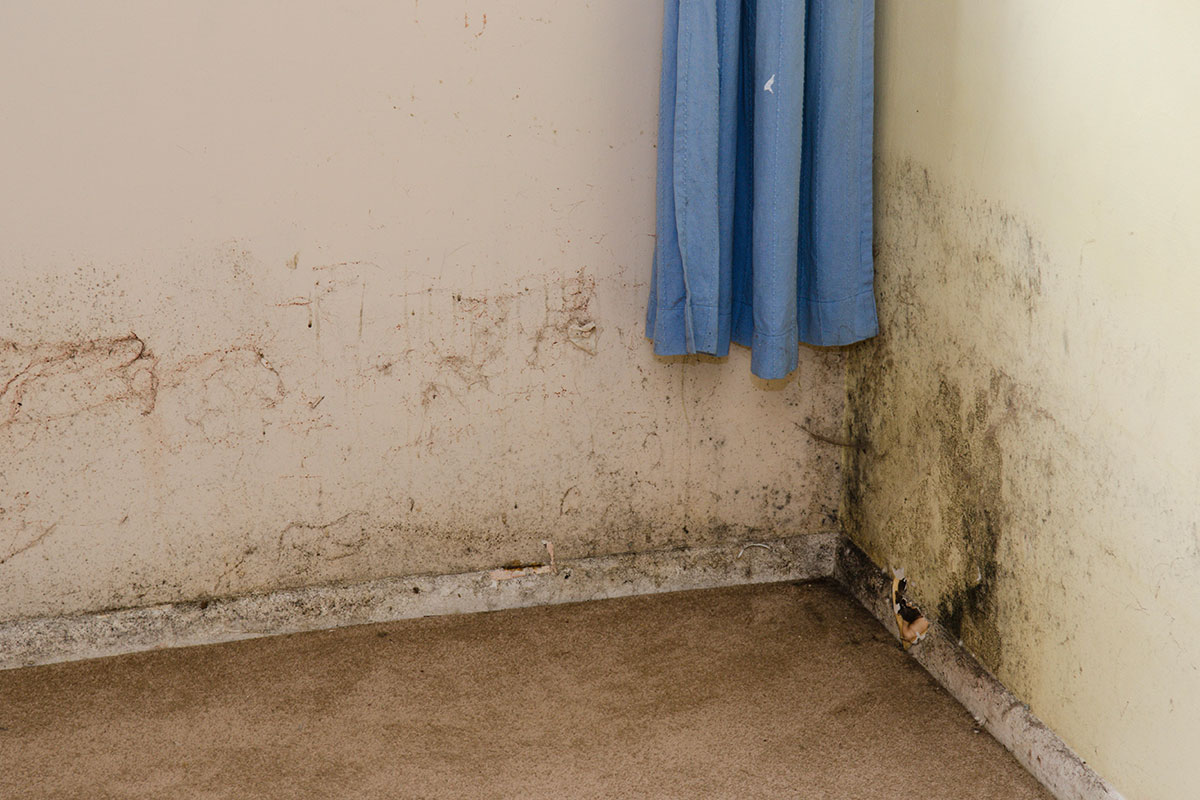RSH downgrades two RPs for governance and issues another clutch of viability downgrades
The English regulator has downgraded two housing associations for governance, making one non-compliant and regrading another for viability, alongside another batch of economically driven viability downgrades from V1 to V2.
The Regulator of Social Housing (RSH) downgraded Christian Action (Enfield) Housing Association (CAHA) to G3 for governance, following a reactive investigation.
In a regulatory judgement published on Wednesday (14 December), it said the housing association, which manages around 1,600 homes, has been unable to provide assurance that it is managing its risks and business planning in an effective way.
The regulator said weaknesses in CAHA’s financial governance, as well as a lack of effective board oversight and scrutiny, meant that it failed to identify the potential crystallisation of a serious risk in sufficient time.
The regulatory judgement said that, as a result, CAHA came within weeks of a potential loan covenant breach that required it to rely on the actions and agreement of third parties to achieve covenant compliance at the end of the year.
CAHA also failed to inform the regulator of these risks in a timely way, and its communication has fallen below the expected standard, the regulator added.
CAHA has taken steps to initiate several planned remedial actions, including a review of its governance and risk management framework, as well as implementing controls to improve the management of its repairs and maintenance service.
CAHA maintained its V2 rating, as it forecasts operating margins that are well below sector averages. The RSH said that, while not untypical of providers with a similar service offer, it does mean the association has less capacity to absorb financial shocks and other adverse scenarios.
The RSH said CAHA will need to retain reasonable business planning assumptions and effective cost controls to protect viability in the longer term.
Harold Brown, senior assistant director for investigations and enforcement at the RSH, said: “We have found significant weaknesses in Christian Action Housing Association’s governance, which has exposed it to financial risks.
“We will monitor the provider closely as it works to resolve these failings and return to compliance with our standards.”
Jackie Kelly, chair of Christian Action, said that while the group is disappointed with the downgrade, it is taking steps to improve its governance rating.
Ms Kelly said there will be no impact on residents or their services, as well as no “material effect” on relationships with key stakeholders.
She said: “Whilst we are disappointed that we have not been able to meet all regulatory expectations, we understand the RSH’s decision regarding our governance grading.
“Our financial viability grading remains compliant, and as an executive team, we are already taking steps and planning to make the improvements required to improve our governance grading.
“We want to reassure our tenants/residents that there will be no impact on them or our service due to this decision. We do not envisage any material effect on our relationship with key stakeholders and partners.
“We will continue to work collaboratively as an organisation to deliver and improve our services to our tenants/residents and offer meetings if desired. Since being placed on the RSH’s gradings under review list, we have been working closely with the RSH and engaging with a specialist for support/advice to help us address the issues.”
Regenda Homes
The RSH downgraded Regenda Homes’ governance from G1 to G2 after the social housing provider breached the rent standard. It also regraded Regenda’s viability from V1 to V2.
The provider, which manages around 12,000 homes in Merseyside, Greater Manchester, Cheshire and Lancashire, overcharged rent on around 500 homes, and inadvertently undercharged on more than 4,000 homes for a prolonged period.
The regulator said Regenda needs to strengthen its risk management, internal controls and assurance framework significantly to ensure that its rents comply with relevant requirements and its own strategic objectives and policies.
It said the board needs to ensure that it is managing its rent-setting with an appropriate degree of skill, diligence and effectiveness. The RSH said Regenda is engaging with it and is taking action to achieve compliance with rent requirements.
Referring to Regenda’s financial viability, the regulator noted that increasing investment in its existing stock coupled with the current economic uncertainty is reducing the association’s capacity to respond to adverse events.
A spokesperson from Regenda Homes said: “We recently identified some historical errors in our rent-setting process, which meant that around 500 residents were overcharged.
“We reported our findings to the Regulator of Social Housing and worked quickly to inform residents and reimburse money owed. We have updated our process to ensure that this does not happen again and continue to work with the regulator to regain our G1 rating.”
V1 to V2 downgrades continue
Elsewhere, a further 13 social housing providers have been downgraded to V2.
Among these were c.32,200 -home Flagship Group, as well as 24,900-home Great Places Housing Group and its proposed merger partner, Mosscare St Vincent’s (MSV) Housing Group. One Vision Housing, which owns or manages around 13,600 homes was also downgraded.
The other 9 registered providers, who each manage fewer than 10,000 homes, are: Hightown Housing Association, Havebury Housing Partnership, Johnnie Johnson Housing Trust, Leeds Federated Housing Association, Orwell Housing Association, Plus Dane Housing, Community Housing Group, Trident Housing Association and West Kent Housing Association.
This marks the third wave of V2 downgrades after the regulator downgraded 34 providers to V2 in November to reflect the challenging economic climate.
This time, as before, the majority of the downgrades were due to housing associations increasing investment in their existing stock that, coupled with inflation and interest rates, reduces their capacity to respond to adverse events.
Forty-seven other social housing providers maintained their regulatory gradings, including A2Dominion, Notting Hill Genesis and Paradigm Housing.
All of the RPs that were downgraded were contacted for comment. Some of the responses are listed below.
RPs’ comments on their V2 downgrades
Community Housing
Matt Cooney, chief executive of Community Housing, said: “We are pleased to have retained the highest governance standard of G1. V2 is a compliant grading, and we are pleased that the regulator is confident that our business plan is sound.
“Our business is operating in changed financial circumstances and the V2 regrade reflects this. We are investing more in our customers’ homes and our significant level of supported housing, which operates at lower margins, is more exposed to inflation than other parts of our business.
“We are also continuing to invest in new homes and energy-efficiency measures. Our financial strength was boosted in 2021 following the refinance of most of our long-term debt at a low interest rate. This will help the business in the current harsh financial climate.
“We are committed to doing all we can to support our customers through the cost-of-living crisis and we are prioritising key services to ensure that our homes are well maintained, safe and compliant.”
Flagship Group
Peter Hawes, chair of Flagship Group, said: “Increasing interest rates, supply chain issues, and higher energy and food prices are all adding to inflationary pressures. And with a predicted recession in 2023, most companies are facing the same challenges of balancing the here and now with the construct of a resilient future – for the business and for tenants. Against this backdrop, a regrade, whilst disappointing, was anticipated.
“It's fundamental that we take actions now to ensure our financial viability remains stable. Therefore, we remain vigilant of risks and exposures, and have adjusted our business plan to meet these changes against a number of different scenarios.
“We have sufficient security and continue to meet our financial covenants to ensure continued compliance, and the regulator has recognised that we have the right risk-management frameworks in place.
“We remain focused on creating and maintaining safe and comfortable homes for our tenants and are also focused on the cost-of-living crisis from our tenants’ perspective, whose household incomes are being squeezed, aiding and easing pressures where we can.”
Great Places Housing Group
In a statement issued online, Great Places said the “economic environment is becoming significantly more challenging”, but it will continue to balance investment in new and existing homes.
“We will continue to balance our investment in new homes to tackle the housing crisis with the need to invest in existing properties to ensure our customers live in high-quality homes.
“The regrade to V2 for so many in the sector reflects that riskier environment, however retaining our G1 grade demonstrates our strong governance and financial management arrangements that allows those increased risks to be effectively managed.
“Our potential merger partner, Mosscare St Vincent’s Housing Group, has been similarly regraded and these announcements will not affect our merger plans, instead they reinforce some of the reasons for merging, which include enhancing our financial resilience and strength by joining together.”
Hightown Housing Association
A spokesperson for Hightown Housing Association said: “We are pleased to have retained our G1 rating for governance.
“The V2 rating accurately reflects our challenges, in the face of rising costs and interest rates, of continuing to provide excellent management and maintenance services while delivering new social housing to help to fix the housing and homelessness crisis.”
Johnnie Johnson Housing
Yvonne Castle, chief executive of Johnnie Johnson Housing, said: “We remain fully compliant with both our regulator’s governance and viability standards and we continue to retain the highest rating for governance. Our regulator recognises that we have an adequately funded business plan in place to meet a variety of scenarios.
“We are responding to the current economic climate we are operating in. We are making sure that our priority is to invest in our customers’ homes, including our continued programme to enhance both our fire safety and energy efficiency.
“We believe Johnnie Johnson Housing continues to make the right decisions to invest in our homes and do best what matters most for our customers.”
Mosscare St Vincent’s Housing Group
Mosscare St Vincent’s Housing Group (MSV) said it will continue to invest in its existing stock, ensuring the homes are high quality, warm and safe for customers, as well as developing new homes, albeit in a significantly more challenging environment.
Charlie Norman, chief executive of MSV, said: “Despite the regrade, MSV remains financially strong. We fully understand that the operating and macroeconomic environment is very challenging for the whole sector.
“At MSV, we are proud to say that we are investing more than ever in our existing homes and services, including retrofitting our homes to make them more energy efficient which, alongside increasing costs, has put more pressure on our business plan.
“But we are committed to doing the decent thing for our customers and this means investing in existing homes and services and desperately needed new homes.”
Orwell Housing Association
Wendy Evans-Hendrick, chief executive of Orwell Housing Association, said: “Whilst we understand the decision made by the regulator, which was due to the uncertain national economic circumstances impacting the entire sector, Orwell remains a financially strong organisation dedicated to providing the best service we can to our customers, and we are confident that we will return to V1 at the earliest opportunity.”
Plus Dane Housing
Ian Reed, chief executive of Plus Dane Housing, said: “Our regrading reflects the challenging times we are in and is consistent with an unprecedented high number of regrades across our sector.
“The regulator is acknowledging the pressures we are all facing with increases in costs of materials, wider inflationary pressures and rising interest rates.
“Our planning is reflective of this, and we are clear what measures we need to take to continue to deliver a good service for customers, maintain our resilience and deliver our social purpose.”
West Kent Housing Association
Tracy Allison, chief executive of West Kent Housing Association, said: “West Kent remains a financially strong and resilient organisation.
“The current economic climate is challenging, but we will continue to invest in our current homes, the communities where we operate and to build new homes. Our G1 rating from the regulator reflects the good risk management and governance we have in place to support us in delivering these plans.”
RPs that had their existing grades confirmed
- A2Dominion (G1, V2)
- Accent (G1, V1)
- Advance Housing and Support (G1, V1)
- Arches Housing (G1, V1)
- B3Living (G1, V1)
- Beyond Housing (G2, V1)
- Bournville Village Trust (G1, V1)
- Brunelcare (G1, V2)
- The Cambridge Housing Society (G1, V2)
- Citizen Housing Group (G1, V1)
- Community Gateway Association (G1, V1)
- Cottsway Housing Association (G1, V1)
- Croydon Churches Housing Association (G2, V1)
- Eastlight Community Homes (G1, V1)
- English Rural Housing Association (G1, V1)
- Fairhive Homes (G1, V1)
- First Garden Cities Homes (G1, V1)
- Framework Housing Association (G1, V2)
- Freebridge Community Housing (G1, V1)
- Gentoo (G1, V2)
- Irwell Valley Housing Association (G1, V2)
- Jigsaw Homes (G1, V1)
- LiveWest (G1, V1)
- Livv Housing (G1, V1)
- Magna Housing (G1, V1)
- Moat Homes (G1, V1)
- Mount Green Housing Association (G2, V2)
- Muir Group Housing Association (G1, V1)
- Newlon Housing Trust (G1, V2)
- North Devon Homes (G1, V2)
- Notting Hill Genesis (G1, V2)
- Nottingham Community Housing Association (G1, V1)
- Paradigm Housing Group (G1, V1)
- Phoenix Community Housing Association (Bellingham and Downham) (G1, V1)
- Pickering and Ferens Homes (G1, V1)
- Poplar Harca (G1, V2)
- South Liverpool Homes (G2, V1)
- Southway Housing Trust (Manchester) (G1, V1)
- Teign Housing (G1, V1)
- Thirteen (G1, V1)
- Torus62 (G1, V1)
- Tuntum Housing Association (G2, V2)
- Warrington Housing Association (G1, V1)
- Watford Community Housing (G1, V1)
- Weaver Vale Housing Trust (G1, V1)
- Westward Housing Group (G1, V1)
- Your Housing Group (G2, V2)
RELATED








